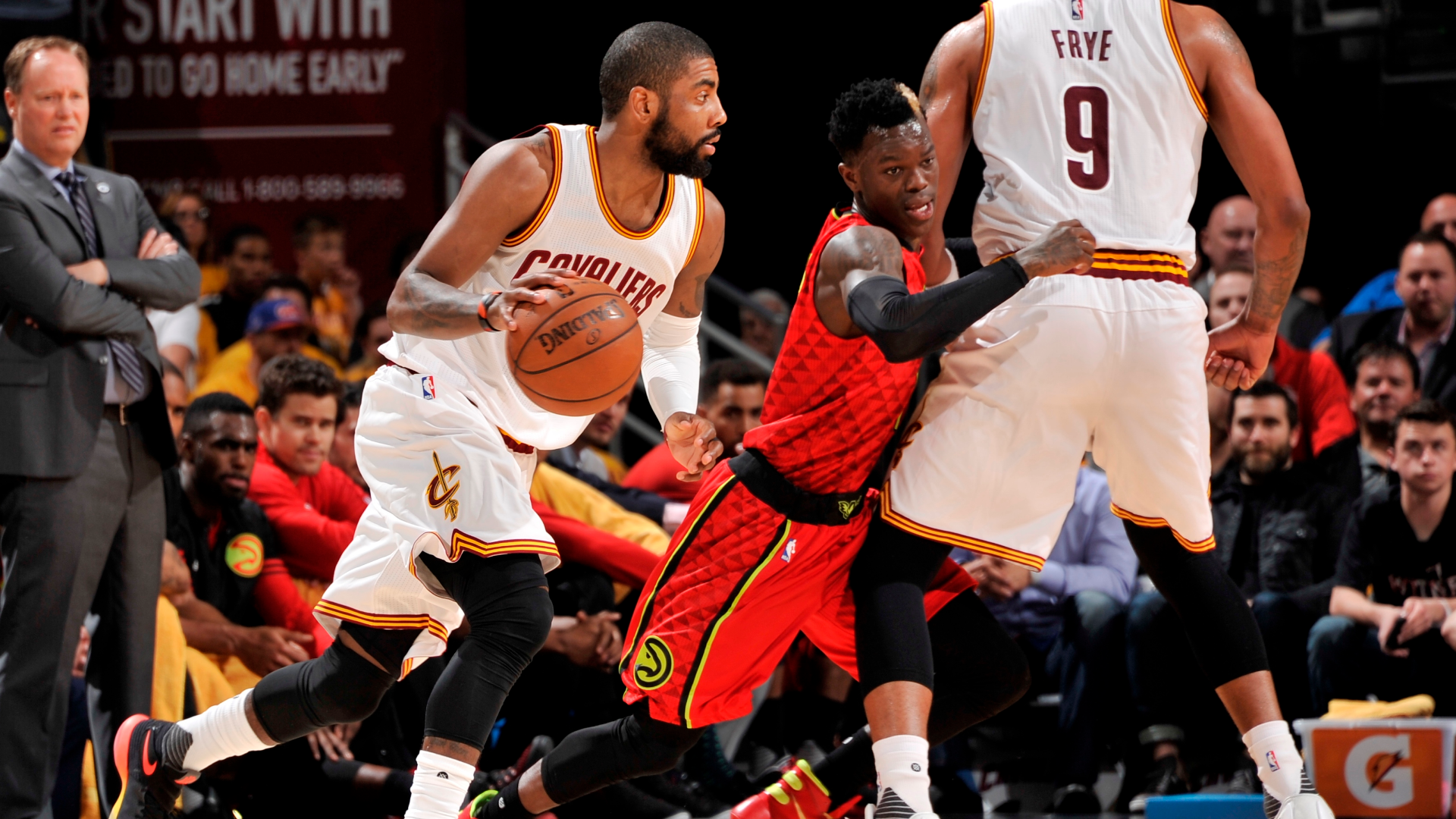When Kyrie Irving was selected No. 1 overall by the Cavaliers in 2011, it was supposed to mark a revamp for the organization after the loss of LeBron James the previous summer.
Kyrie was created to be ‘the man’ in Cleveland. So it was, at least for a few years.
NBA League Pass: Sign up to unlock out-of-market live games (7-day free trial)
reconstruction
LeBron James’ departure in 2010 marked a reset for the Cavaliers franchise. It was supposed to be the dawn of a new era, and the franchise placed all its bets on the Duke point guard. Irving only appeared in 11 games for the Blue Devils during his only year in college due to a serious ligament injury in his right big toe during the ninth game of the season.
He eventually played again at March Madness, but Duke was eliminated at the Sweet Sixteen.
Irving was the prize pick in the NBA draft, and Cleveland needed a player around whom they could build for the future, as well as a draft card that could fill the arena. When James left in 2010, it was estimated that he cost the city of Cleveland billions in lost revenue.
Irving, from an individual standpoint, did not disappoint during his rookie campaign, averaging 18.5 points, 5.4 assists and shooting 46.9 percent from the field, including 39.9 percent on 3-pointers.
He received 117 of a possible 120 first-place votes to win Rookie of the Year, but the Cavs only managed to win 21 games. The following year they managed just 24 wins, and in 2013-14 they won 33 games, showing some improvement, but not enough overall team success.
The dynamic duo
During the summer of 2014, LeBron James decided he wanted to come home after a four-year stint with the Miami Heat that earned him two championships in four straight Finals. Part of the appeal of returning to Cleveland was actually Irving’s game. James had noticed that the rising star was doing his thing and felt that they could make a devastating tandem.
The Cavaliers then traded for Kevin Love to create an all-star trio that could win a championship.
While their individual numbers were pretty much the same across the board as they were the previous season, it was clear nonetheless that this was James’ team, and Kyrie was no longer the number one choice.
Injuries, including a knee injury sustained by Irving in Game 1 of that season’s finals, hampered the Cavs’ ability to win a championship in 2014-15, but they were able to get the job done the following season. Irving heralded himself as a big game player with one of the most decisive shots in NBA Finals history. He hit a 3-pointer with 53 seconds remaining in Game 7 that propelled the Cavaliers to a 92–89 lead and an eventual 93–89 victory.
A year later, though, things really started to go wrong for both the Cavaliers and Irving’s ability to co-exist with James. The Warriors beat the Cavs 4-1 to regain the NBA title in the Finals that year, and that was the last time Irving and James took the court as teammates in the same franchise.
Trade
In July 2017, Irving asked the Cavaliers to trade him. ESPN.com’s Brian Windhorst reported that Irving requested a trade because he wanted to “play in a situation where he can be more of a focal point and that he doesn’t want to play alongside LeBron James anymore.”
On August 22, Irving was traded to the Boston Celtics in exchange for Isaiah Thomas, Jae Crowder, Ante Žižić, and the rights to the Brooklyn Nets’ 2018 first-round draft pick.
Why did Irving leave the Cavaliers?
Irving initially didn’t explain to the media why he demanded a trade, so rumors arose as to why. From Windhorst’s report that he wasn’t happy playing alongside James, to reports suggesting Irving heard the Cavaliers were dangling him as trade bait to other teams. One report indicated that James wanted Irving to trade Damian Lillard.
Word throughout the NBA was that Irving wasn’t satisfied that, despite making that shot in Game 7, all the credit for the Cavs’ championship win went to James. Essentially, he was tired of being number 2 when he knew he was number one.
However, during an interview with ESPN’s Jackie MacMullan, Irving refuted that suggestion, stating simply that he knew it was time to change one.
“[Leaving] It was inevitable,” he said. “I could feel it. I didn’t feel the need to say anything because I knew the truth, and so did they. So it didn’t matter what anyone else said.”
He added: “They didn’t want me there.”
In October 2018, Irving suggested that one of the reasons for his departure was that he could foresee all the changes coming in Cleveland, for example James moving west to the Lakers.
“Like, keep it real,” Irving said. “If I was still in Cleveland, it would be … as if everything that was planned to happen, happened.”
Irving felt that he did not want to spend the best years of his career on a team with little chance of immediate success and that ultimately it was best to walk away. Given the way things played out in Boston, that may also have been his train of thought when he decided to sign with the Brooklyn Nets as a free agent after just two seasons with the Celtics.

